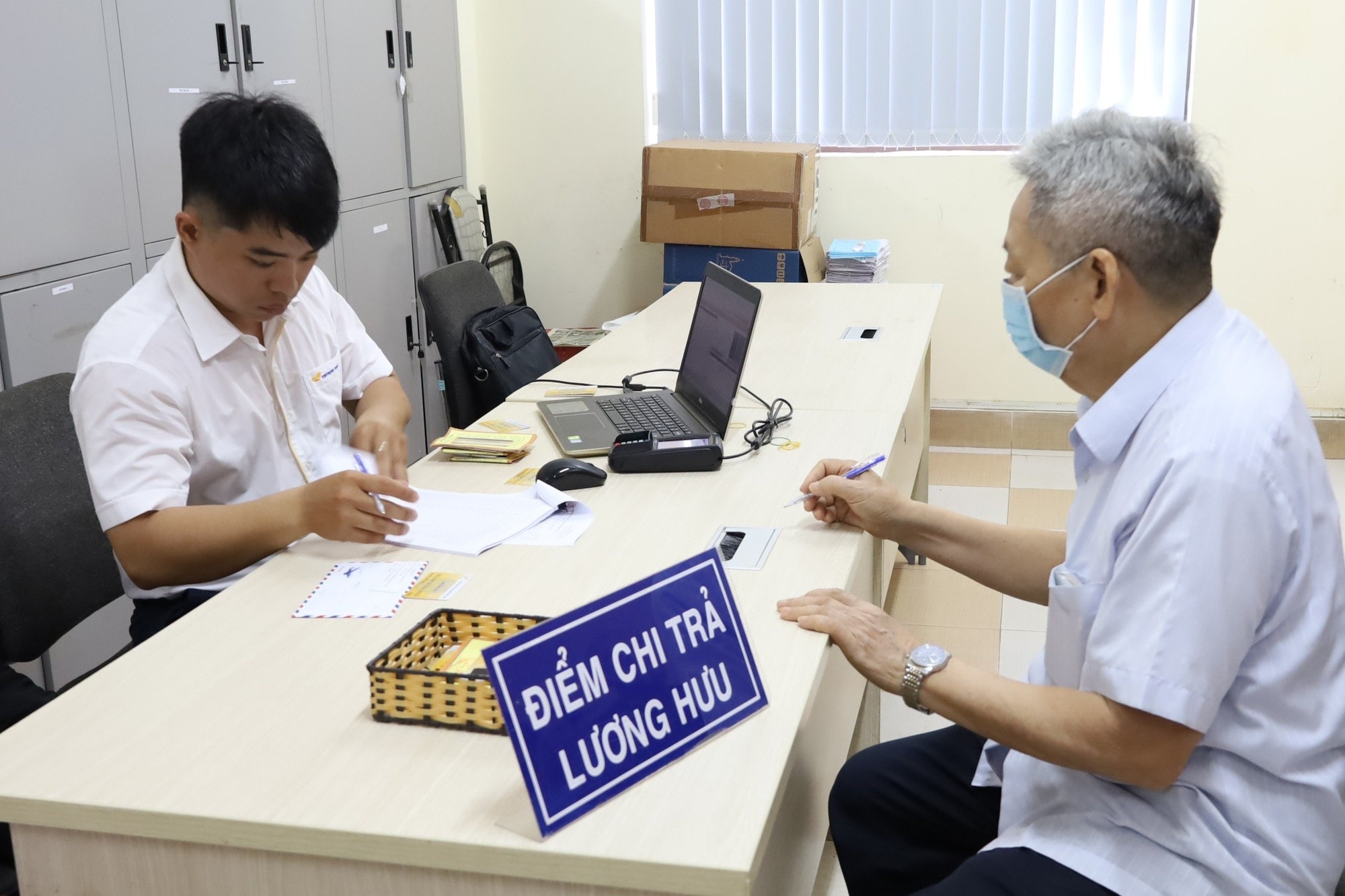People can receive two months' worth of pension payments together during Tet (Lunar New Year).
Government Decree 233/2025 on the financial mechanism of social insurance, health insurance, and unemployment insurance stipulates that in some special cases, beneficiaries may receive a lump sum payment of two months' pension or social insurance benefits.
Collect payments via bank account, tighten handling of late payments and evasion of payments.
The government has recently issued Decree 233/2025 regulating the financial mechanism for social insurance, unemployment insurance, and health insurance. A notable new point is that the collection of insurance contributions will be centralized through a benefit collection account, then transferred to Vietnam Social Insurance, aiming to increase transparency and consistency in management.
The financial resources of the insurance system include the Social Insurance Fund (which includes a portion of the state budget allocated to pay pensions and allowances for beneficiaries covered by the budget), the Unemployment Insurance Fund, the Health Insurance Fund, and other legitimate financial sources. Social insurance agencies at all levels, as well as the Military Social Insurance and the Public Security Social Insurance, are responsible for organizing the collection and periodic transfer of funds to Vietnam Social Insurance according to regulations.
The decree also clearly stipulates the principles for allocating contributions and penalty fees for violations. Upon receiving contributions from employers, the Social Insurance agency will prioritize timely payments to eligible employees. The remaining amount will be allocated in the following order: Health Insurance, Unemployment Insurance, and then to the component funds of the Social Insurance agency. Notably, all penalty fees for late or evaded payments will be directly added to the funds to increase payment resources.

A leader of Vietnam Social Security stated that all social insurance, health insurance, and unemployment insurance funds are managed centrally and uniformly at the central level. Local authorities, after collecting contributions from employees and employers, transfer them to the central fund and are not allowed to retain any of them. Expenditures from this fund are also based on annual budgets and are only disbursed upon a decision from the central government.
"At the end of the year, revenue minus expenses will create a fund surplus, which will continue to be managed centrally," a representative from Vietnam Social Security said.
Regarding investment returns from funds primarily invested through government bonds, these are recorded separately for each fund. Specifically, interest from the Social Insurance Fund is added to the Social Insurance Fund itself; interest from Health Insurance or Unemployment Insurance is also added to the corresponding fund. All funds are accounted for independently and transparently. Investment returns are not used for purposes outside of regulations.
Regarding interest on late payments, revenue from penalties for late payment of social insurance, health insurance, and unemployment insurance contributions is also deposited into the corresponding funds, and then used in accordance with regulations to pay benefits, pensions, sickness benefits, maternity benefits, etc.
"There were no losses or misuses of funds," a representative from Vietnam Social Security emphasized.
In cases where two months' pension or social insurance benefits are paid together.
One policy that has attracted particular public attention in Decree 233 is the lump-sum payment of pensions and social insurance benefits for two consecutive months.
Accordingly, in special cases such as when the payment period coincides with the Lunar New Year or when the payment process is affected by natural disasters, epidemics, force majeure events, or when directed by competent authorities, the Director General of Vietnam Social Security will consider and decide on transferring funds to make a combined payment for two months to the beneficiary.
According to a leader of Vietnam Social Security, the combined payment of two months' worth of benefits will only be implemented when there is a policy from the Government to support beneficiaries.
Allowing for lump-sum payments of two months in special circumstances is a flexible solution that offers many advantages to the people. Firstly, pensioners and recipients of social insurance benefits will have additional timely financial resources to cover expenses during the Lunar New Year – a period of high demand. Secondly, in the event of natural disasters, epidemics, or unforeseen circumstances, lump-sum payments help mitigate risks, alleviate difficulties for beneficiaries, and ensure their rights are not interrupted.
This is not just financial support, but also demonstrates care and flexibility in managing and paying social insurance benefits, prioritizing the interests and peace of mind of the people.
Operating expenses are deducted from the interest earned in the investment fund.
A noteworthy point is that the operating costs of the social insurance sector, including staff salaries, are drawn from a small portion of investment profits, according to a rate approved by the National Assembly. Thus, citizens' contributions are not used for system operating costs. All salaries and allowances for social insurance officials are taken from a small portion of investment profits, without affecting the rights of those participating in social insurance and health insurance.



